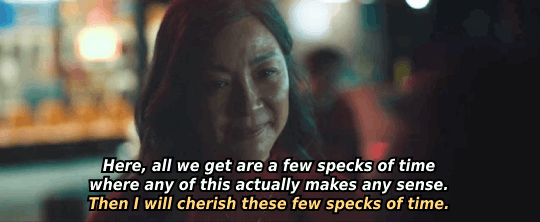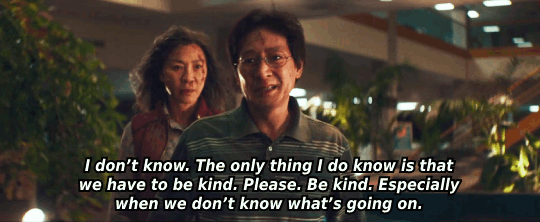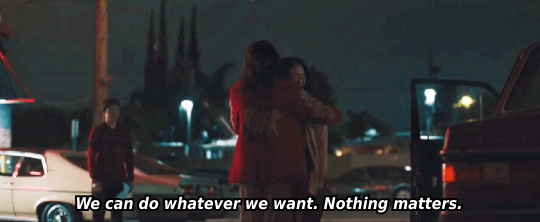No idea what i'm doing here but hey, we're all like that to some degree. Usually lurks around and silently geeks out at interests.
Last active 4 hours ago
Don't wanna be here? Send us removal request.
Text
The Rest, is Awkward Silence
"Now cracks a noble heart," Horatio said, his arms holding Hamlet as Denmark's prince slowly slipped away. "Good night, sweet prince. And flights of angels sing thee to thy rest."
He slowly let his dear friend go, then turned to see as two men entered the chamber.
"...what am I seeing?" asked Fortinbras, the crown prince of Norway. "What was it you were saying?"
"I was offering a lament for my friend, Hamlet," Horatio explained.
"Right," the other man said – the English ambassador, if Horatio recalled right. "And not for the… hold on… three other corpses in the room?"
"It has been…" Horatio began, then paused. "...a day."
"Then explain, please," Fortinbras asked. "Because I hesitate to hear what could have caused this to happen."
"Well," Horatio said. "To give you the very brief summary… Hamlet is dead because he was stabbed by Laertes with a poisoned sword."
"Who's Laertes?" the ambassador asked.
Horatio pointed. "That's him over there. He was also stabbed, by Hamlet, with the same poisoned sword."
"Right," Fortinbras said. "And… how exactly did that happen?"
"Well, the poisoned sword was given to him by Claudius, I think," Horatio explained. "Who's also dead. Over there."
"Oh, that's a shame," the ambassador muttered. "I was coming here to tell him that his instructions were fulfilled – Rosencrantz and Guildenstern are dead."
Fortinbras blinked, glancing at the ambassador. "Seriously?"
"King Claudius asked us to, and I was hoping that England would be rewarded for it," the ambassador mumbled. "They delivered a letter that said, please kill whoever is carrying this letter."
"That's a letter Hamlet was supposed to deliver to you," Horatio informed him. "But Hamlet worked out what was going on, and he swapped the letters around."
Fortinbras was starting to look a bit overwhelmed.
"So… I've still got some questions," he admitted. "Firstly, what about that lady over there?"
"That's Queen Gertrude!" the ambassador gasped. "Did she get stabbed by a poisoned sword, too?"
"No, this time it was wine," Horatio answered. "Claudius offered it to Hamlet, who refused, and then the Queen drank it… and, that was poisoned too. That's half of how Hamlet killed Claudius, and I offered to drink the wine as well to follow my friend. But he told me that someone had to be around to explain what had happened."
Fortinbras and the ambassador exchanged glances.
"...I'm not sure you're doing a very good job, but you are doing it," the prince conceded. "So why did all these people want one another dead?"
"I don't think anyone wanted the Queen dead," Horatio said, counting on his fingers. "She drank the wine by mistake, I think. Claudius wanted Hamlet dead because Hamlet had worked out that Claudius assassinated King Hamlet with poison in the ear."
"Oh, this isn't getting better, is it?" Fortinbras muttered. "That explains why Prince Hamlet wanted Claudius dead, I suppose… but it was Laertes who killed Hamlet, wasn't it? And how on earth did they both get stabbed with the same sword?"
"They were in a duel," Horatio explained. "Laertes knew the sword was poisoned… yes, he must have done, from what he said before he died."
The ambassador groaned.
"I'm going to regret asking this," he said. "But why were they in a duel?"
"Laertes blamed Hamlet for the deaths of his sister and father," Horatio admitted, somewhat reluctantly.
"Horatio," Fortinbras said, almost gently. "I know you're in mourning for your friend, but… I'm standing in a room with two people Hamlet killed, and he sent two more of them to be executed by the English king. At this point I'm expecting Laertes to be right."
Horatio looked uncomfortable.
"He didn't kill Ophelia?" he tried. "Though he did insult her, tell her she was a whore, and run off after killing Polonius. So she committed suicide."
Seeing the expressions on the other two men, he waved his hands. "He didn't mean it! He was pretending to be insane."
"Pretending?" the ambassador repeated.
"All right, what about Polonius?" Fortinbras asked. "I dread to think… from context, that must be the father of Laertes."
Horatio looked embarrassed.
"Hamlet stabbed him through the arras," he said.
The ambassador winced.
"Sounds painful," he said.
"An arras is a tapestry hanging," Fortinbras pointed out. "But… all right, why?"
"Polonius was spying on him," Horatio explained. "Hamlet may have thought that Polonius was Claudius."
Fortinbras sighed, rubbing his temples.
"As God is my witness, I'm not sure I want to win the election for this place," he said. "But I think I've got the best legal claim."
He paused.
"So… how exactly did you find out that Claudius killed King Hamlet?" he asked. "I've not heard any such thing, but you sound very sure."
"...Hamlet saw a ghost," Horatio said. "And I'll admit, that sounds bad. But he did a test to prove it! He wrote a play."
Fortinbras groaned.
"Didn't you say you were offering a lament for your friend?" he said.
"It was very meaningful," Horatio defended himself. "I said, may hosts of angels sing you to your sleep."
Fortinbras and the ambassador blinked.
"Isn't he directly responsible for the deaths of about six people?" the ambassador asked, somewhat hesitantly. "I'm not sure if you have a different theology here in Denmark, but I wouldn't exactly expect angels to be involved…"
396 notes
·
View notes
Text





"I was falling. I will fall." "Yes. What will you do with your remaining time?"
3K notes
·
View notes
Text
People would always tell me that if I hyper fixated on things too much I wouldn’t be open to new experiences and let me tell you the opposite is true. Like, I’ve hyper fixated on good omens so much that it’s led me down a pipeline to Hozier, Shakespeare, Dr Who, and cop shows, like if anything loving good omens so intensely has broadened my horizons. I’m now going to London to watch David Tennent in Macbeth even though two years ago I said Shakespeare was stupid.
Don’t ever be afraid to love things intensely. Loving one thing just opens doors to another.
#i couldn't relate more to this post#except i called it 'educational fangirling' lol#doctor who#shakespeare
122 notes
·
View notes
Text

That’s my mannnnn ⚡️🎸⚡️
Originally from: https://x.com/ari_drwz/status/1840555081512755399?s=46

1K notes
·
View notes
Text
how it feels knowing that loneliness is still time spent with the world

26K notes
·
View notes
Text


Dame Maggie Smith as Muriel Donnelly The Second Best Exotic Marigold Hotel (2015)
24K notes
·
View notes
Text
There should be a fanfic writing game called the showrunners challenge where someone writes a story and partway through someone else can play things like "actor leaves after 4000 more words" or "topic now too politically sensitive due to unforeseen world events" or "lost rights to that reference"
36K notes
·
View notes
Text
120 ULTIMATE LIST OF CHARACTER FLAWS. Writers save this!
1. Moral Flexibility - Adapts their ethics to fit the situation, often justifying questionable actions as necessary.
2. Cognitive Dissonance - Holds two conflicting beliefs or values and struggles to reconcile them, leading to inner turmoil.
3. Overempathy - Feels others’ emotions too intensely, leading to burnout or an inability to make objective decisions.
4. Intellectual Arrogance - Dismisses others’ ideas as inferior, believing their own intellect is superior.
5. Chronic Overthinking - Analyzes situations to the point of paralysis, unable to take decisive action.
6. Restless Wanderlust - Has a constant desire for change or travel, leading to instability in relationships or careers.
7. Savior Complex - Feels compelled to “save” others, often to the detriment of their own well-being or others’ autonomy.
8. Emotional Vampirism - Drains others emotionally, needing constant validation or attention.
9. Righteous Indignation - Becomes excessively angry over perceived injustices, often alienating others.
10. Altruistic Self-Destruction - Sacrifices themselves for others to an unhealthy degree, often leading to self-neglect.
11. Pathological Modesty - Downplays their own achievements to the point of self-sabotage or invisibility.
12. Incapable of Solitude - Feels an intense fear of being alone, leading to codependent or unhealthy relationships.
13. Over-Rationalization - Justifies every action or decision, even when it’s clearly flawed, to avoid guilt or responsibility.
14. Constant Self-Sabotage - Subconsciously undermines their own success due to deep-seated fears or insecurities.
15. Misplaced Loyalty - Stays loyal to people or causes even when it’s harmful or undeserved.
16. Ethical Rigidity - Follows their moral code to the letter, unable to adapt to complex or gray situations.
17. Need for Obscurity - Prefers to stay unnoticed or in the background, avoiding recognition or responsibility.
18. Involuntary Aloofness - Appears distant or disinterested, often without meaning to, leading to misunderstandings.
19. Fear of Mediocrity - Terrified of being ordinary, they constantly strive for greatness, often leading to burnout.
20. Rejection Sensitivity - Overreacts to criticism or perceived slights, often withdrawing or lashing out.
21. Conflict Avoidance - Avoids confrontation at all costs, leading to unresolved issues and resentment.
22. Over-idealization of Others - Puts people on pedestals, only to be deeply disappointed when they don’t meet expectations.
23. Chronically Unfulfilled - No matter what they achieve, they always feel something is missing, leading to constant searching.
24. Compulsive Truth-Telling - Feels compelled to speak the truth, even when it would be kinder or wiser to remain silent.
25. Overactive Imagination - Sees threats or possibilities where there are none, leading to anxiety or missed opportunities.
26. Faux Humility - Pretends to be humble but secretly craves admiration or validation.
27. Micromanagement - Needs to control every detail, often suffocating others or hindering their own progress.
28. Anachronistic Thinking - Clings to outdated beliefs or practices, struggling to adapt to modern realities.
29. Over-Reliance on Routine - Becomes anxious or lost without their routines, struggling to adapt to change.
30. Selective Memory - Remembers events in a way that suits their narrative, often distorting the truth.
31. Paradoxical Fear of Success - Desires success but subconsciously fears the changes or responsibilities it might bring.
32. Compassion Fatigue - Once empathetic, now numbed or indifferent due to overwhelming exposure to others’ suffering.
33. Overwhelming Nostalgia - Lives in the past, unable to move forward or appreciate the present.
34. Unyielding Perfectionism - So focused on flawlessness that they struggle to complete tasks or accept anything less than perfect.
35. Epistemic Arrogance - Believes they know everything worth knowing, dismissing the possibility of learning from others.
36. Excessive Hedonism - Pursues pleasure to the point of neglecting responsibilities or moral considerations.
37. Over-Cautiousness - So afraid of making mistakes that they rarely take action, leading to missed opportunities.
38. Idealistic Naivety - Believes the world should operate according to their ideals, often clashing with reality.
39. Ambition without Direction - Desires greatness but has no clear path or plan, leading to frustration and failure.
40. Emotional Transference - Projects unresolved emotions onto others, often misinterpreting their intentions or actions.
41. Overdependence on Routine - Becomes anxious or lost without their routines, struggling to adapt to change.
42. Misplaced Guilt - Feels responsible for things outside of their control, leading to unnecessary self-blame.
43. Fear of Being Ordinary - Constantly strives to stand out, often at the expense of authenticity or well-being.
44. Chronic Indecisiveness - Struggles to make even simple decisions, constantly second-guessing themselves.
45. Faux Cynicism - Pretends to be jaded or cynical as a defense mechanism, while secretly caring deeply.
46. Romanticization of Suffering - Believes that suffering is noble or meaningful, often rejecting happiness or comfort.
47. Selective Compassion - Empathetic towards some but completely indifferent or cold to others, often based on biases.
48. Avoidant Optimism - Avoids negative thoughts or situations, clinging to an unrealistic positivity that ignores real problems.
49. Fear of Abandonment - Clings to relationships out of fear of being left alone, often leading to unhealthy dynamics.
50. Overidentification with Work - Sees their job as their entire identity, struggling with self-worth outside of work.
51. Excessive Altruism - Sacrifices their own needs to help others, often to their own detriment.
52. Self-Imposed Isolation - Withdraws from others out of fear of rejection or misunderstanding, leading to loneliness.
53. Over-Analysis Paralysis - Overthinks every situation to the point of being unable to make decisions or take action.
54. Eternal Romantic - Sees the world through a lens of idealized love, often leading to disillusionment or heartbreak.
55. Emotional Incontinence - Struggles to control their emotions, often overwhelming others with their intensity.
56. Fear of Aging - Obsessed with youth, they go to great lengths to deny or hide the aging process.
57. Intellectual Cowardice - Avoids challenging their own beliefs or ideas, sticking to what they know out of fear of change.
58. Emotional Hoarding - Holds onto past hurts or grudges, unable to let go and move on.
59. Unquenchable Curiosity - Always needs to knw more, often prying into others’ lives or crossing boundaries.
60. Romantic Escapism - Uses fantasy or daydreams as a way to avoid dealing with reality, leading to detachment.
61. Masochistic Tendencies - Deliberately seeks out situations that cause them pain or discomfort, believing they deserve it.
62. Incurable Wanderer - Can never settle down, always moving on to the next place or experience, leading to rootlessness.
63. Dependency on Validation - Needs constant approval or praise from others to feel good about themselves.
64. Constant Self-Reinvention - Continuously changes their identity or persona, never settling on who they truly are.
65. Moral Masochism - Finds satisfaction in self-punishment or guilt, often holding themselves to impossible standards.
66. Faux Bravado - Pretends to be fearless or confident to hide deep-seated insecurities or fears.
67. Over-romanticization of the Past - Idealizes past experiences, believing that things were better back then, leading to dissatisfaction with the present.
68. Chronic Hedging - Never fully commits to decisions or actions, always leaving themselves an escape route.
69. Fear of Stagnation - Constantly needs to be doing something or moving forward, fearing they’ll become irrelevant or bored.
70. Over-Attachment to Objects - Places excessive sentimental value on material possessions, struggling to let go.
71. Emotional Stoicism - Refuses to show or acknowledge emotions, leading to repression and eventual breakdowns.
72. Self-Flagellation - Constantly punishes themselves for perceived failures or mistakes, often disproportionate to the actual events.
73. Fear of the Unknown - Terrified of what they can’t predict or control, leading to anxiety or avoidance of new experiences.
74. Romantic Pessimism - Believes that love or relationships are doomed to fail, leading to self-sabotage or cynicism.
75. Intellectual Purism - Believes in the superiority of “pure” intellectual pursuits, often dismissing practical or emotional concerns.
76. Existential Dread - Obsesses over the meaning (or lack thereof) of life, leading to paralysis or despair.
77. Involuntary Nonconformity- Desires to fit in but can’t help standing out or going against the grain, often feeling alienated.
78. Self-Imposed Martyrdom - Puts themselves in a position of suffering or sacrifice, believing it’s their duty or fate.
79. Idealized Self-Image - Clings to an unrealistic self-concept, struggling to accept their flaws or limitations.
80. Compulsive Honesty - Feels compelled to always tell the truth, even when it’s hurtful or inappropriate.
81. Over-Reliance on Technology - Becomes helpless without modern conveniences, struggling to cope with real-world challenges.
82. Moral Exhibitionism - Shows off their ethics or principles to gain admiration or moral superiority, often insincerely.
83. Perpetual Student Syndrome - Always learning but never applying knowledge, avoiding real-world responsibilities.
84. Emotional Osmosis - Absorbs others’ emotions so deeply that they lose track of their own feelings or needs.
85. Pathological Frugality - So obsessed with saving money or resources that they miss out on life’s joys or opportunities.
86. Obsessive Self-Improvement - Never satisfied with themselves, constantly striving for unattainable perfection.
87. False Modesty - Pretends to be humble while fishing for compliments or validation.
88. Uncontrolled Impulsiveness - Acts on whims or impulses without considering the consequences, leading to chaos or regret.
89. Chronic Hedonism - Lives only for pleasure, often to the detriment of their long-term happiness or relationships.
90. Overly Abstract Thinking - So focused on big ideas or concepts that they lose touch with reality or practical concerns.
91. Romantic Idealism - Believes in a perfect love or relationship, often leading to disappointment or disillusionment.
92. Selective Altruism - Only helps others when it suits them, often ignoring those who don’t fit their criteria.
93. Pathological Shyness - So shy or introverted that they struggle to function in social situations, often missing out on opportunities.
94. Moral Superiority - Believes they are more ethical or righteous than others, often looking down on those who don’t share their views.
95. Over-identification with a Role - Sees themselves only as their job, family role, or social identity, losing sight of their true self.
96. Chronic Complaining - Constantly finds something to complain about, often bringing others down or creating a negative atmosphere.
97. Faux Stoicism - Pretends to be emotionally strong or unaffected, while secretly struggling with deep emotional turmoil.
98. Addiction to Drama - Thrives on conflict or chaos, often creating drama where there is none to feel alive or important.
99. Obsessive Collecting - Gathers possessions, knowledge, or experiences obsessively, often unable to let go or move on.
100. Inflexible Optimism - Refuses to acknowledge negative possibilities, often unprepared for setbacks or challenges.
101. Contrarianism - Always takes the opposite stance just to challenge others, often without genuine conviction.
102. Emotional Projection - Attributes their own feelings or issues onto others, often leading to misunderstandings.
103. Compulsive Heroism - Feels the need to be seen as heroic or brave, even in situations that don’t call for it.
104. Spiritual Narcissism - Uses spirituality as a way to feel superior to others or to avoid personal flaws.
105. Self-Defeating Humor - Constantly makes jokes at their own expense, using humor to deflect serious issues.
106. Identity Fluidity - Frequently changes their identity or beliefs to fit in with different groups, losing a sense of true self.
107. Overattachment to the Past - Can’t move on from past successes or failures, allowing them to define their present.
108. Pseudointellectualism - Pretends to know more than they do, using complex language or ideas to impress others.
109. Overidealization of Youth - Places youth on a pedestal, often dismissing the value of experience or aging.
110. Refusal to Accept Help - Rejects assistance from others, believing they must do everything on their own, even to their detriment.
111. Emotional Manipulation - Uses guilt, pity, or other emotions to control or influence others, often without realizing it.
112. Inconsistent Values - Holds contradictory beliefs or morals, leading to confusion or hypocrisy in their actions.
113. Obsession with Legacy - So focused on how they’ll be remembered that they neglect the present or make unwise choices.
114. Excessive Eagerness to Please - Goes out of their way to make others happy, often at the cost of their own needs or principles.
115. Emotionally Guarded - Builds walls around their feelings, making it difficult for others to get close or understand them.
116. Selective Memory - Chooses to remember events in a way that favors them, often distorting the truth.
117. Overattachment to Authority - Relies heavily on rules or leaders, struggling to make decisions independently or question authority.
118. Fear of Vulnerability - Avoids showing weakness or asking for help, leading to isolation or burnout.
119. Intellectual Detachment - Approaches everything with cold logic, often ignoring the emotional or human side of situations.
120. Obsession with Control - Needs to control every aspect of their life and others’, often leading to stress or strained relationships.
BONUS🔥
CREATE YOUR CHARACTERS WITH DEPTH TODAY! Don't settle for shallow, forgettable characters—elevate your writing with the ultimate character worksheet.
This template isn't just about characters; it’s your all-in-one tool for worldbuilding, writer planning from idea generation to publishing, roadmaps, synced databases, and series planning. It’s the ultimate character and worldbuilding bible you’ve been waiting for.
Available now! Use code "F4NTASY" to get an incredible 75% off! This offer won’t last long, so grab yours now before it’s too late!



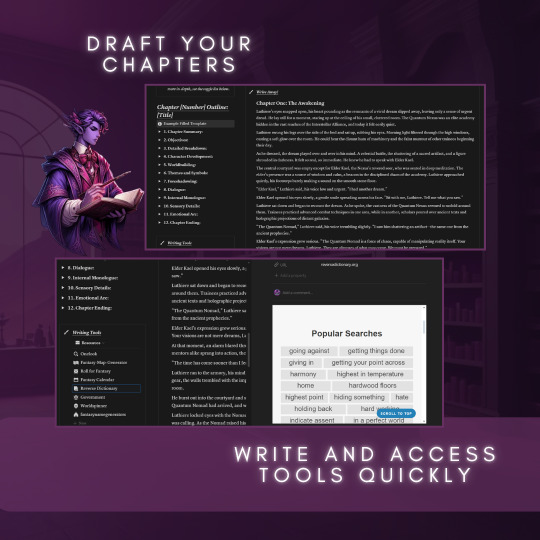

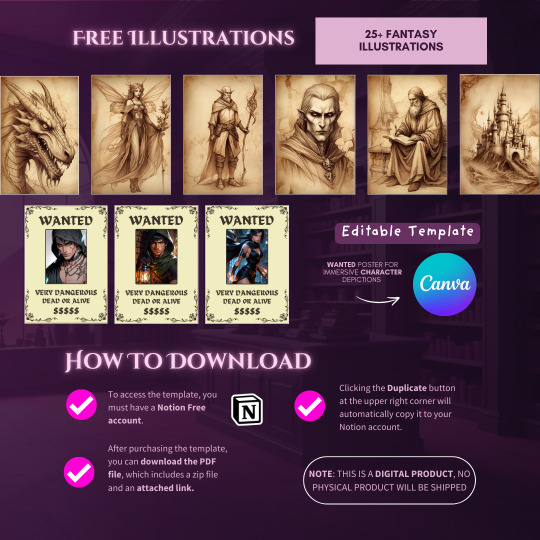
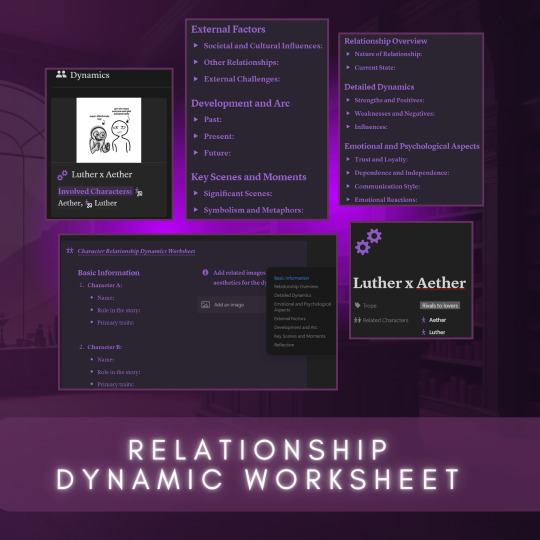
8K notes
·
View notes
Text
Want your readers to totally fall for your characters? Show them at their weakest, most vulnerable moments. It’s not just the epic, brave stuff that sticks with people, it’s those quiet, super raw scenes that hit hardest. Maybe your character is sitting in their car crying after a bad day, or they’re confessing a secret they’ve buried deep for way too long. Those messy, human moments are the ones where your readers will be like, “Wow, I’ve totally felt that.” That’s how you make your characters unforgettable, by making them real.
700 notes
·
View notes
Text

This recent trend in media I love is starting to become uncanny
21K notes
·
View notes
Text
Soooo I'm a somewhat avid doctor who fan, and I've just begun the first ep of bbc sherlock. And oh my god does sherlock feel like someone merged 11 and 12 together then put in a dash of grittiness and psychopathy.....
I guess steven moffat really likes writing these type of characters lol (no complaint from me though)
3 notes
·
View notes
Text
you ever think about the rtd1? it's rusting spaceships and tangles wires. Cardiff Warf. that warm glow. Overcoats. cluttered apartments and 2000s fashion. its mascara and camp in just the right way for people to forget it. it's roses smile and donna's hoop earings. it's all the different shades of brown and that one shade of blue. it's watching the stars in the backyard with a thermos of tea. its the practical effect aliens. the coral tardis bathed in green light. its vworping/ its the history in the doctor's eyes and the way you know this man has a family. he's your best friend and your dad and you know the doctor is going to protect you. it's snow on Christmas eve. it's about being a solider in a war, any war, because it's always the same. it's downing street and those london houses layouts in every era they go to with the doors with windows at the top and staircase being the first thing on the right. it's the desperation in the doctors voice when he talks to the daleks. it's old, not ancient, but old and cobbled together. it is hope. it Is always hope.
1K notes
·
View notes
Text
25 Prose Tips For Writers 🖋️✨ Part 1
Hey there!📚✨
As writers, we all know that feeling when we read a sentence so beautifully crafted that it takes our breath away. We pause, reread it, and marvel at how the author managed to string those words together in such a captivating way. Well, today I'm going to unpack a few secrets to creating that same magic in your own writing. These same tips I use in my writing.
But before I begin, please remember that writing is an art form, and like any art, it's subjective. What sounds beautiful to one person might not resonate with another. The tips I'm about to share are meant to be tools in your writer's toolkit, not rigid rules. Feel free to experiment, play around, and find what works best for your unique voice and style.
Power of Rhythm 🎵
One of the most overlooked aspects of beautiful prose is rhythm. Just like music, writing has a flow and cadence that can make it pleasing to the ear (or mind's ear, in this case). Here are some ways to incorporate rhythm into your writing:
a) Vary your sentence length: Mix short, punchy sentences with longer, flowing ones. This creates a natural ebb and flow that keeps your reader engaged.
Example: "The sun set. Darkness crept in, wrapping the world in its velvet embrace. Stars winked to life, one by one, until the sky was a glittering tapestry of light."
b) Use repetition strategically: Repeating words or phrases can create a hypnotic effect and emphasize important points.
Example: "She walked through the forest, through the shadows, through the whispers of ancient trees. Through it all, she walked with purpose."
c) Pay attention to the stressed syllables: In English, we naturally stress certain syllables in words. Try to end important sentences with stressed syllables for a stronger impact.
Example: "Her heart raced as she approached the door." (Stronger ending) vs. "She approached the door as her heart raced." (Weaker ending)
Paint with Words 🎨
Beautiful prose often creates vivid imagery in the reader's mind. Here are some techniques to help you paint with words:
a) Use specific, concrete details: Instead of general descriptions, zoom in on particular details that bring a scene to life.
Example: Instead of: "The room was messy." Try: "Crumpled papers overflowed from the waste bin, books lay spine-up on every surface, and a half-eaten sandwich peeked out from under a stack of wrinkled clothes."
b) Appeal to all five senses: Don't just describe what things look like. Include smells, sounds, textures, and tastes to create a fully immersive experience.
Example: "The market bustled with life. Colorful fruits glistened in the morning sun, their sweet aroma mingling with the earthy scent of fresh herbs. Vendors called out their wares in sing-song voices, while customers haggled in animated tones. Sarah's fingers brushed against the rough burlap sacks of grain as she passed, and she could almost taste the tang of ripe oranges on her tongue."
c) Use unexpected comparisons: Fresh similes and metaphors can breathe new life into descriptions.
Example: Instead of: "The old man was very thin." Try: "The old man was a whisper of his former self, as if life had slowly erased him, leaving behind only the faintest outline."
Choose Your Words Wisely 📚
Every word in your prose should earn its place. Here are some tips for selecting the right words:
a) Embrace strong verbs: Replace weak verb + adverb combinations with single, powerful verbs.
Example: Instead of: "She walked quickly to the store." Try: "She hurried to the store." or "She dashed to the store."
b) Be specific: Use precise nouns instead of general ones.
Example: Instead of: "She picked up the flower." Try: "She plucked the daisy."
c) Avoid clichés: Clichés can make your writing feel stale. Try to find fresh ways to express common ideas.
Example: Instead of: "It was raining cats and dogs." Try: "The rain fell in sheets, transforming the streets into rushing rivers."
Play with Sound 🎶
The sound of words can contribute greatly to the beauty of your prose. Here are some techniques to make your writing more musical:
a) Alliteration: Repeating initial consonant sounds can create a pleasing effect.
Example: "She sells seashells by the seashore."
b) Assonance: Repeating vowel sounds can add a subtle musicality to your prose.
Example: "The light of the bright sky might ignite a fight."
c) Onomatopoeia: Using words that sound like what they describe can make your writing more immersive.
Example: "The bees buzzed and hummed as they flitted from flower to flower."
Art of Sentence Structure 🏗️
How you structure your sentences can greatly affect the flow and impact of your prose. Here are some tips:
a) Use parallel structure: When listing items or actions, keep the grammatical structure consistent.
Example: "She came, she saw, she conquered."
b) Try periodic sentences: Build suspense by putting the main clause at the end of the sentence.
Example: "Through storm and strife, across oceans and continents, despite all odds and obstacles, they persevered."
c) Experiment with sentence fragments: While not grammatically correct, sentence fragments can be powerful when used intentionally for emphasis or style.
Example: "She stood at the edge of the cliff. Heart racing. Palms sweating. Ready to jump."
Power of White Space ⬜
Sometimes, what you don't say is just as important as what you do. Use paragraph breaks and short sentences to create pauses and emphasize important moments.
Example: "He opened the letter with trembling hands.
Inside, a single word.
'Yes.'"
Read Your Work Aloud 🗣️
One of the best ways to polish your prose is to read it aloud. This helps you catch awkward phrasing, repetitive words, and rhythm issues that you might miss when reading silently.
Edit Ruthlessly ✂️
Beautiful prose often comes from rigorous editing. Don't be afraid to cut words, sentences, or even entire paragraphs if they don't serve the overall beauty and effectiveness of your writing.
Study the Masters 📖
Please! Read widely and pay attention to how your favorite authors craft their prose. Analyze sentences you find particularly beautiful and try to understand what makes them work.
Practice, Practice, Practice 💪
Like any skill, writing beautiful prose takes practice. Set aside time to experiment with different techniques and styles. Try writing exercises focused on specific aspects of prose, like describing a scene using only sound words, or rewriting a simple sentence in ten different ways.
Remember, that developing your prose style is a journey, not a destination. It's okay if your first draft isn't perfect – that's what editing is for! The most important thing is to keep writing, keep experimenting, and keep finding joy in the process.
Here are a few more unique tips to help you on your prose-perfecting journey:
Create a Word Bank 🏦
Keep a notebook or digital file where you collect beautiful words, phrases, or sentences you come across in your reading. This can be a great resource when you're looking for inspiration or the perfect word to complete a sentence.
Use the "Rule of Three" 3️⃣
There's something inherently satisfying about groups of three. Use this to your advantage in your writing, whether it's in listing items, repeating phrases, or structuring your paragraphs.
Example: "The old house groaned, creaked, and whispered its secrets to the night."
Power of Silence 🤫
Sometimes, the most powerful prose comes from what's left unsaid. Use implication and subtext to add depth to your writing.
Example: Instead of: "She was heartbroken when he left." Try: "She stared at his empty chair across the breakfast table, the untouched coffee growing cold."
Play with Perspective 👁️
Experiment with different points of view to find the most impactful way to tell your story. Sometimes, an unexpected perspective can make your prose truly memorable.
Example: Instead of describing a bustling city from a human perspective, try describing it from the point of view of a bird soaring overhead, or a coin passed from hand to hand.
Use Punctuation Creatively 🖋️
While it's important to use punctuation correctly, don't be afraid to bend the rules a little for stylistic effect. Em dashes, ellipses, and even unconventional use of periods can add rhythm and emphasis to your prose.
Example: "She hesitated—heart pounding, palms sweating—then knocked on the door."
Create Contrast 🌓
Juxtapose different elements in your writing to create interest and emphasis. This can be in terms of tone, pacing, or even the literal elements you're describing.
Example: "The delicate butterfly alighted on the rusted barrel of the abandoned tank."
Use Synesthesia 🌈
Synesthesia is a condition where one sensory experience triggers another. While not everyone experiences this, using synesthetic descriptions in your writing can create vivid and unique imagery.
Example: "The violin's melody tasted like honey on her tongue."
Experiment with Sentence Diagrams 📊
Remember those sentence diagrams from school? Try diagramming some of your favorite sentences from literature. This can give you insight into how complex sentences are structured and help you craft your own.
Create a Sensory Tour 🚶♀️
When describing a setting, try taking your reader on a sensory tour. Move from one sense to another, creating a full, immersive experience.
Example: "The old bookstore welcomed her with the musty scent of aging paper. Dust motes danced in the shafts of sunlight piercing the high windows. Her fingers trailed over the cracked leather spines as she moved deeper into the stacks, the floorboards creaking a greeting beneath her feet. In the distance, she could hear the soft ticking of an ancient clock and taste the faint bitterness of old coffee in the air."
Use Active Voice (Most of the Time) 🏃♂️
While passive voice has its place, active voice generally creates more dynamic and engaging prose. Compare these two sentences:
Passive: "The ball was thrown by the boy." Active: "The boy threw the ball."
Magic of Ordinary Moments ✨
Sometimes, the most beautiful prose comes from describing everyday occurrences in a new light. Challenge yourself to find beauty and meaning in the mundane.
Example: "The kettle's whistle pierced the quiet morning, a clarion call heralding the day's first cup of possibility."
Play with Time ⏳
Experiment with how you present the passage of time in your prose. You can stretch a moment out over several paragraphs or compress years into a single sentence.
Example: "In that heartbeat between his question and her answer, universes were born and died, civilizations rose and fell, and their entire future hung in the balance."
Use Anaphora for Emphasis 🔁
Anaphora is the repetition of a word or phrase at the beginning of successive clauses or sentences. It can create a powerful rhythm and emphasize key points.
Example: "She was the sunrise after the longest night. She was the first bloom of spring after a harsh winter. She was the cool breeze on a sweltering summer day. She was hope personified, walking among us."
Create Word Pictures 🖼️
Try to create images that linger in the reader's mind long after they've finished reading. These don't have to be elaborate – sometimes a simple, unexpected combination of words can be incredibly powerful.
Example: "Her laughter was a flock of birds taking flight."
Use Rhetorical Devices 🎭
Familiarize yourself with rhetorical devices like chiasmus, antithesis, and oxymoron. These can add depth and interest to your prose.
Example of chiasmus: "Ask not what your country can do for you – ask what you can do for your country." - John F. Kennedy
Even the most accomplished authors continue to hone their craft with each new piece they write. Don't be discouraged if your first attempts don't sound exactly like you imagined – keep practicing, keep experimenting, and most importantly, keep writing.
Your unique voice and perspective are what will ultimately make your prose beautiful. These techniques are simply tools to help you express that voice more effectively. Use them, adapt them, or discard them as you see fit. The most important thing is to write in a way that feels authentic to you and brings you joy.
Happy writing, everyone! 🖋️💖📚 - Rin T
Hey fellow writers! I'm super excited to share that I've just launched a Tumblr community. I'm inviting all of you to join my community. All you have to do is fill out this Google form, and I'll personally send you an invitation to join the Write Right Society on Tumblr! Can't wait to see your posts!
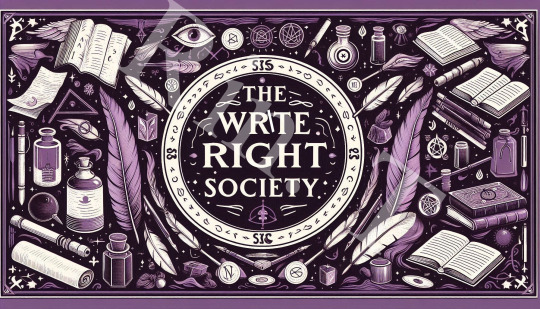
2K notes
·
View notes
Text
A day in the life of a writer:
The entire day: Doing anything except writing
between 10 p.m and 3 a.m:
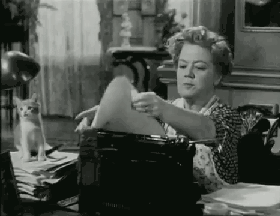
This was a day in the life of an exhausted writer, see ya guys 🤩😊✌
3K notes
·
View notes
Text
"are you sure you even want a relationship?" well you see it's complicated because I've never been seriously interested in any particular person. but I have this specific tenderness in me that has nowhere to go
134 notes
·
View notes

